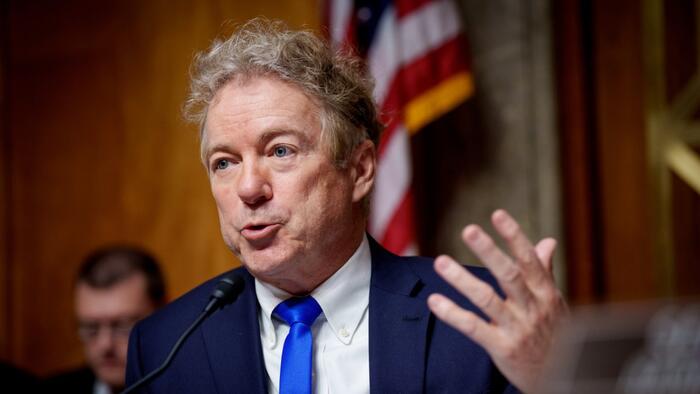
What’s Happening?
- The Bill: The House passed the “One Big Beautiful Bill Act” (a big spending package). It now heads to the Senate, where some Republicans are blocking it, calling it too costly.
- Debt Ceiling Issue: The bill raises the U.S. borrowing limit by $5 trillion, allowing the government to keep paying its bills. Critics argue this adds too much debt.
Who’s Opposing It?
- Rand Paul (R-KY): Leading the charge, he insists the bill must remove the $5 trillion debt hike to win his support. He claims 3 other GOP senators agree with him.
- His Argument: “If we vote for this, Republicans own the debt. The math doesn’t work — we can’t keep borrowing like this.”
- Ron Johnson (R-WI): Calls the bill “unsustainable” and wants spending cut to pre-pandemic levels (before COVID-19).
- His Quote: “We’re mortgaging our kids’ future. It’s immoral.”
What’s at Stake?
- Tax Cuts: The bill makes Trump’s 2017 tax cuts permanent, which supporters say boosts the economy.
- Deficit Concerns: A Congressional Budget Office (CBO) analysis says the plan would add $3.8 trillion to the deficit over 10 years (the gap between what the government spends and earns).
- Jamie Dimon (JPMorgan CEO) and Elon Musk warn this could cause a financial crisis by shaking confidence in U.S. debt.
Trump’s Warning
- Donald Trump urged Republicans to pass the bill, saying:
- Opposing it helps Democrats and risks a historic debt default (the U.S. failing to pay what it owes).
- “Rand Paul is playing into Democrats’ hands. Kentucky won’t forgive him!”
How Could This Play Out?
- Reconciliation Process: Senate Republicans can pass the bill with 51 votes (not the usual 60), but they can only afford to lose 3 votes.
- If 4 GOP senators reject it (like Paul and Johnson), the bill fails unless changes are made.
- Next Steps: Senate leaders may modify the bill to cut costs or split it into smaller parts.
Why Should You Care?
- Debt Impact: More borrowing could lead to higher taxes or spending cuts down the road.
- Political Fight: Highlights a split in the GOP: Growth vs. Fiscal Caution.
Bottom Line: This battle isn’t just about numbers — it’s about how much debt is too much and who pays the price. The Senate’s decision could shape the U.S. economy for decades.